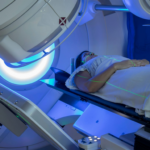
Introduction:
Prostate cancer is a prevalent malignancy that affects the prostate gland, a small walnut-shaped organ located below the bladder in men. Early detection plays a crucial role in successful treatment, making it essential to recognize the symptoms associated with prostate cancer. In this blog post, we will explore the common signs and symptoms of prostate cancer, which can help individuals seek medical attention promptly and improve their chances of a positive outcome.
- Urinary Symptoms:
Prostate cancer can cause various urinary symptoms due to the proximity of the prostate gland to the urethra, the tube responsible for carrying urine from the bladder out of the body. While these symptoms can also be caused by non-cancerous conditions like benign prostatic hyperplasia (BPH), they should be evaluated by a healthcare professional. Common urinary symptoms associated with prostate cancer include:
- Increased frequency of urination, particularly during the night (nocturia).
- Difficulty starting or stopping urination.
- Weak urine flow or interrupted urine stream.
- Incomplete emptying of the bladder, leading to a sensation of residual urine.
- Blood in the urine.
- Sexual Dysfunction:
Prostate cancer can impact sexual function and lead to the following symptoms:
- Erectile dysfunction (difficulty achieving or maintaining an erection).
- Pain or discomfort during ejaculation.
- Decreased libido.
These symptoms may arise due to the effects of the cancer itself or as a result of treatments such as surgery, radiation therapy, or hormone therapy. It’s important to note that sexual dysfunction can also be caused by other factors unrelated to prostate cancer, so a thorough evaluation is necessary to determine the underlying cause.
- Pain and Discomfort:
As prostate cancer grows or spreads beyond the prostate gland, it can cause pain and discomfort in various areas, including:
- Pain or a burning sensation during urination.
- Pain in the lower back, hips, or pelvis.
- Discomfort in the testicles.
Advanced prostate cancer may also cause bone pain, particularly in the spine, hips, or ribs. It is crucial to consult a healthcare professional if persistent or worsening pain occurs, as early intervention can provide relief and improve quality of life.
- Other Symptoms:
In some cases, prostate cancer may manifest with additional symptoms, including:
- Unexplained weight loss.
- Fatigue or weakness.
- Swelling in the legs or pelvic area.
- Bowel changes, such as constipation or blood in the stool (less common).
These symptoms are less specific to prostate cancer and can be associated with a range of other conditions. However, when experienced alongside urinary or sexual symptoms, they can provide valuable clues for further investigation.
Conclusion:
Recognizing the symptoms of prostate cancer is crucial for early detection and improved treatment outcomes. However, it’s important to note that these symptoms are not exclusive to prostate cancer and can also be caused by non-cancerous conditions. If you experience any of the aforementioned symptoms, it is recommended to consult a healthcare professional for a comprehensive evaluation. Regular check-ups and screenings are essential, particularly for men over the age of 50 or those with a family history of prostate cancer. By staying vigilant and seeking timely medical attention, individuals can increase their chances of successful prostate cancer management and overall well-being.




